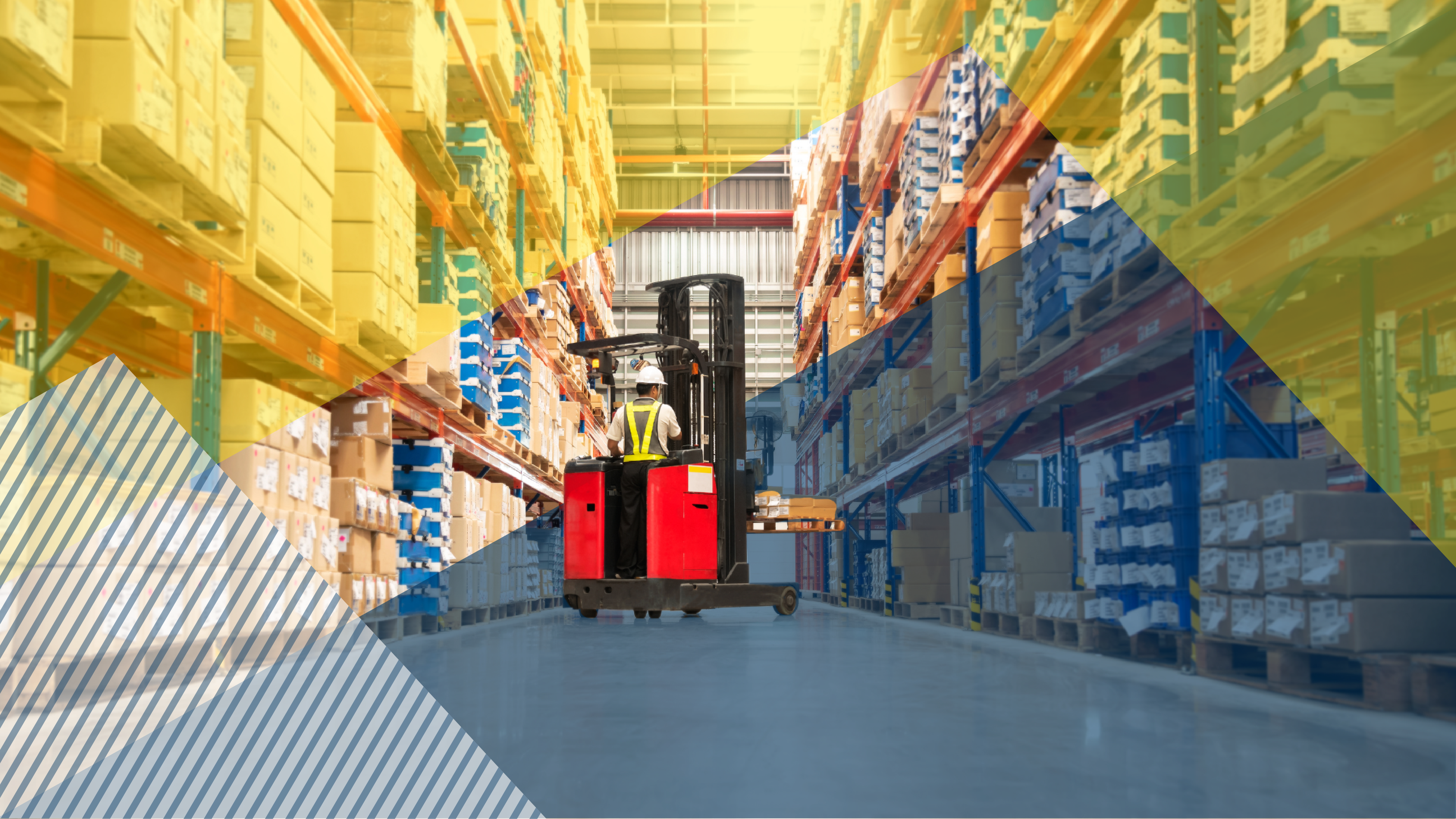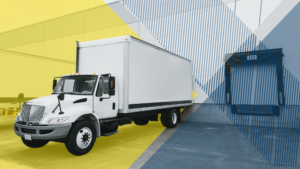Businesses are constantly looking to improve their supply chain operations and bottom line. Regardless of if your business is B2B (business-to-business) or B2C (business-to-consumer) focused, it could be advantageous for you to work with a 3PL. But what all do these logistics partners provide? In this article, we will breakdown all the benefits businesses can capitalize on by working with a third party logistics provider.
What Is A 3PL?
A 3PL, or Third-Party Logistics provider, is a company that offers logistics and supply chain management services to other businesses. These services can include a wide range of activities related to the movement and storage of goods, such as transportation, warehousing, distribution, order fulfillment, and freight forwarding.
Companies often use 3PL services to outsource aspects of their logistics operations, allowing them to focus on their core business activities. 3PL providers leverage their expertise, infrastructure, and resources to optimize the supply chain processes and help clients reduce costs, improve efficiency, and enhance overall logistics performance.
Services Offered By 3PLs
A 3PL typically offers a range of services to assist businesses in managing various aspects of their supply chain. Here is a list of common services provided by 3PL companies:
Transportation Management
- Inbound and outbound freight management
- Carrier selection and negotiation
- Routing and scheduling
Warehousing And Distribution
- Inventory management
- Order fulfillment
- Cross-docking
- Pick and pack services
- Packaging and labeling
Order Fulfillment
- Picking and packing orders
- Order processing
- Shipping and delivery
Freight Forwarding
- International and domestic freight services
- Customs brokerage
- Documentation and compliance
Supply Chain Visibility
- Real-time tracking and monitoring
- Reporting and analytics
- Visibility into inventory levels
Returns Management
- Handling product returns
- Restocking or disposing of returned items
- Reverse logistics
Technology Integration
- Implementation of logistics and supply chain software
- Integration with client’s systems (e.g., ERP systems)
Value-Added Fulfillment Services
- Kitting and assembly
- Quality control
- Product customization
Consulting and Optimization
- Supply chain analysis and optimization
- Cost reduction strategies
- Continuous improvement initiatives
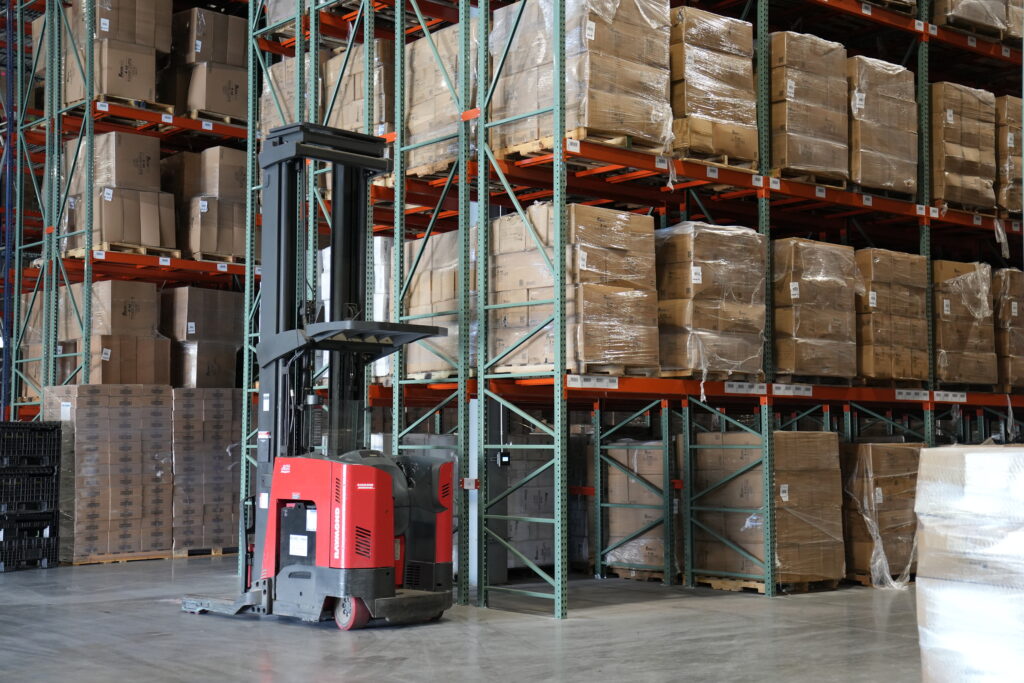
How Can 3PLs Help B2B Businesses?
3PLs can offer several benefits to B2B companies by helping optimize their supply chain operations and logistics processes. Here are some ways in which 3PLs can assist these businesses:
- Help Unlock Cost Optimization: 3PLs often have established networks and resources, allowing B2B businesses to benefit from economies of scale. Outsourcing logistics functions to a 3PL can help reduce overall operating costs by eliminating the need for in-house logistics infrastructure.
- Providing Global Reach To New/Existing Markets: For B2B businesses involved in international trade, 3PLs with expertise in global logistics can facilitate the movement of goods across borders, ensuring compliance with customs regulations and optimizing shipping routes.
- Offering Real-Time Inventory Management Capabilities: 3PLs can assist in optimizing inventory levels, reducing carrying costs, and ensuring that the right products are available at the right locations to meet demand.
- Eliminate Slow Fulfillment And Shipping: Efficient order processing, picking, packing, and shipping services provided by 3PLs contribute to timely and accurate deliveries, enhancing customer satisfaction for B2B businesses.
- Access To A Wide Library Of Supply Chain Management Technology: 3PLs often employ advanced logistics and supply chain management technologies, offering B2B businesses access to real-time visibility, analytics, and reporting tools for better decision-making.
How Can 3PLs Help B2C Businesses?
3PLs are also crucial in supporting B2C businesses, allowing for more efficiency, flexibility, and customer satisfaction. Here are some of the ways 3PLs benefit them:
- Getting Products To Customers Quicker: 3PLs can handle order processing, picking, packing, and shipping, ensuring accurate and timely deliveries to end consumers. Fast and reliable order fulfillment contributes to improved customer satisfaction.
- Store And Distribute Products Efficiently: 3PLs provide warehousing solutions, optimizing inventory management and ensuring that products are strategically located for efficient distribution. Distribution centers can be strategically placed to reduce shipping times and costs.
- Providing E-commerce Support: 3PLs specialize in supporting e-commerce operations, managing the fulfillment of online orders, handling returns, and integrating with various e-commerce platforms. They can scale operations to accommodate the dynamic demands of e-commerce businesses.
- Management of Shipping & Freight Operations: 3PLs can negotiate favorable shipping rates, choose the best carriers, and optimize shipping routes, reducing shipping costs for B2C businesses. Offer multiple shipping options, such as standard, expedited, and express shipping, to meet diverse customer expectations.
- Provide and Implement Advanced Technology Integration: Implement advanced logistics technologies for real-time tracking, inventory visibility, and order status updates. Integration with the B2C business’s technology systems, such as order management and customer relationship management (CRM) software.
- Comprehensive Returns Management: Efficient handling of product returns, including processing, restocking, and disposal. Streamlining the returns process contributes to a positive customer experience.
How To Find The Right 3PL Partner
It can be hard for businesses to find the right logistics partner that can cater to their exact needs. Here are three tips when looking for the perfect 3PL:
Understand Your Business’ Needs
Before you begin the vetting process of 3PLs, it’s crucial to understand exactly what you are looking for. By understanding the needs of your business, you can quickly remove 3PLs that don’t provide the services that you need. This will also help you discuss with potential partners your exact needs that way they can put together a custom solution for you.
Do Through Research On Each 3PL
Once you weed out the 3PLs that don’t fit your needs, you will have a list of potential partners. To help narrow this, you can research them to see their previous reviews from other businesses. This will help you get a sense of how they work, and if they will follow through on their guarantees.
Evaluate Cost & Value
Finally, and most importantly, it’s crucial to review quotes that you receive from the different providers. Compare them between companies, see what one 3PL may provide that the other doesn’t, and ensure you are getting the best value for your money.
Once you have an understanding of which 3PL provider is going to provide you with the best deal, you can move forward in the process and let the experts take it from there.
3PL Stats (2024)
- Revenue in the Third Party Logistics (3PL) market is projected to reach 263.1bn USD in 2024 (Source)
- As of 2023 are 21,253 Third-Party Logistics businesses in the US, an increase of 1.3% from 2022 (Source)
- Over 700,000 people are employed in the 3PL industry (Source)
- 90% of Domestic Fortune 500 companies use 3PLs (Source)
Frequently Asked Questions – 3PL
What Is The Difference Between A 3PL And A Warehouse?
Warehouses are owned by companies to store and manage their inventory, focusing on storage and order fulfillment. In contrast, Third-Party Logistics (3PL) providers are external entities that offer comprehensive logistics services, including transportation, distribution, and storage, catering to the logistics needs of other businesses.
What’s An Example Of A 3PL?
A local mattress business is having trouble storing and fulfilling excess inventory that they have at their brick & mortar location. This is where a 3PL will come in and provide receiving, storage, and fulfillment of their products from their warehouse. Allowing for the mattress business to focus more on their core business needs.
What Services Are Typically Offered By A 3PL?
3PLs all offer the same standard services throughout, these are things like receiving, storing, packing, and shipping items for customers. However, 3PLs can also offer their own set of value-added fulfillment services. This can include service offerings such as cross-docking, kitting, and rework.
What Is The Difference Between A 3PL vs 4PL
Fourth-party logistics companies (4PLs) wholly manage the supply chain operations on the behalf of the original company by subcontracting different parts of the supply chain to third-party providers. These partners typically don’t actually run any of the day-to-day operations. Instead, they serve as a consultant on your behalf and coordinate with other service providers. This is obviously much different than a 3PL which actually runs the operations for customers.
To learn more about the different logistics services levels, read here.
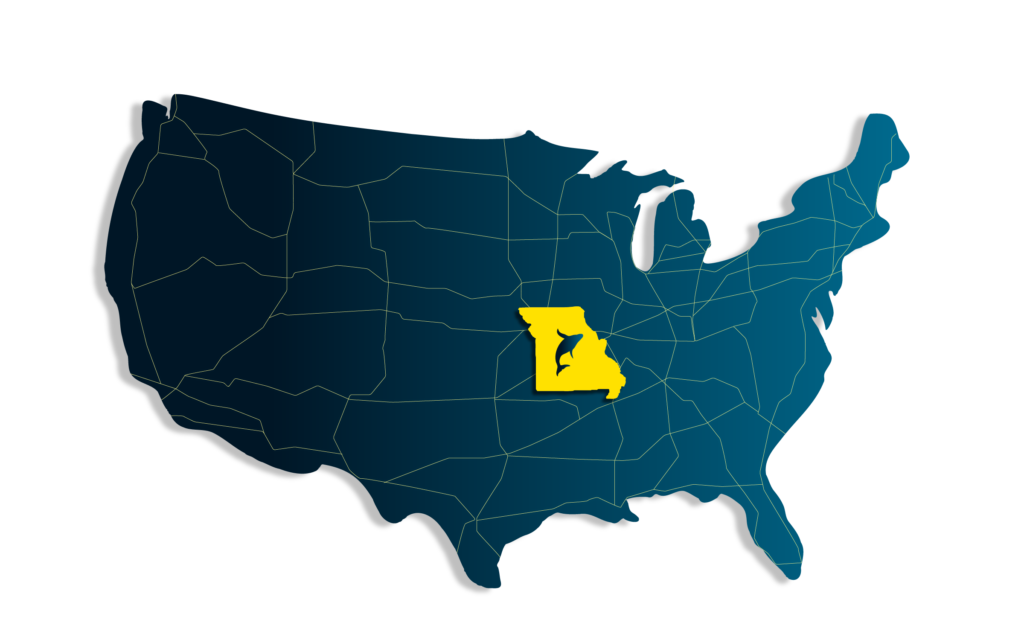
Choose Nautical – Your Reliable 3PL Partner
It’s vital to your business’ growth to have a partner that can scale with you and provide an array of warehousing and fulfillment services. Luckily, Nautical is a vertically integrated supply chain company focused on providing customers with custom solutions for any of their needs. And by being located in Kansas City, it allows us to pass competitive shipping rates down and two-day shipping capabilities to our customers.
